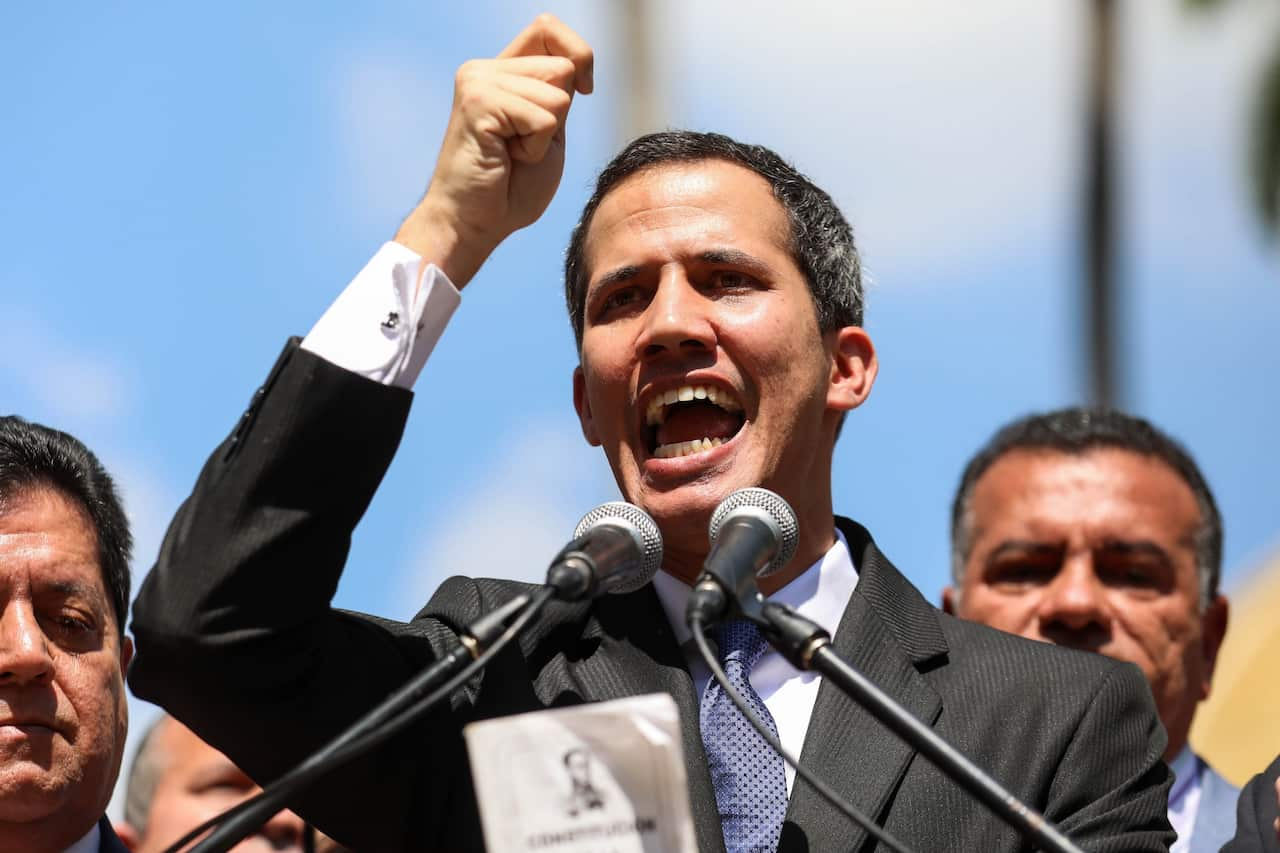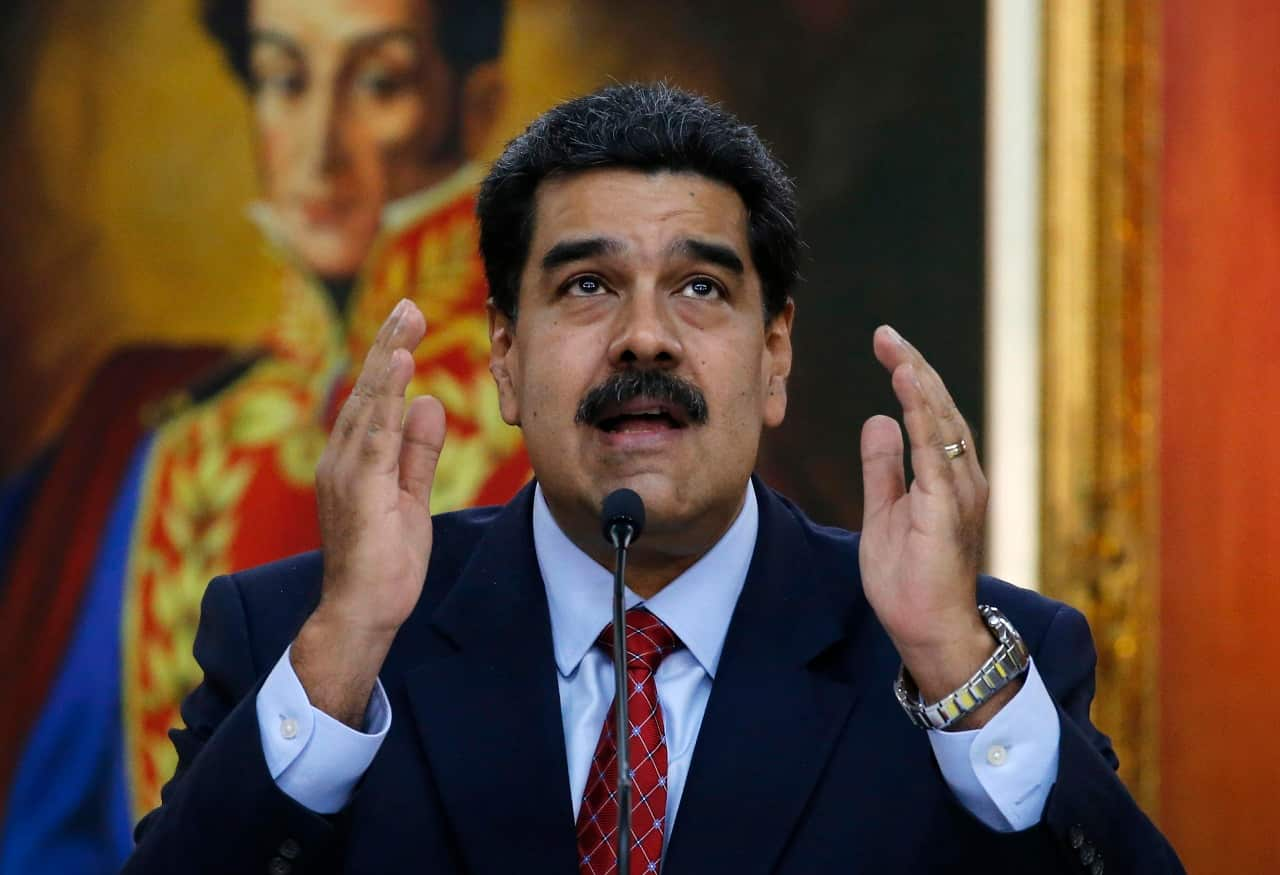Spain, Britain and France were among 15 EU nations to side with Guaido on Monday.
But key Maduro ally Russia slammed European "interference" in the oil-rich but impoverished Latin American country, saying it was an attempt "to legitimise usurped power."
Guaido thanked each EU country in turn on Twitter "for supporting all Venezuelans in this struggle we undertake to rescue our nation's democracy, freedom and justice."
Claiming his legitimacy from the constitution, the 35-year-old National Assembly leader shocked the world when he proclaimed himself interim president on January 23, setting up a tense standoff with Maduro.
Both men headed rival massive street rallies in Caracas on Saturday. Despite Guaido's pleas for their support, the armed forces the country's key power, have remained loyal to Maduro.
The opposition leader has expressed confidence he will win the backing of senior officers after a top air force general publicly sided with him on Saturday.
Guaido is trying to force from power the socialist leader, labelled a dictator by the West and his Latin American neighbors after presiding over Venezuela's economic collapse, aiming to set up a transitional government and hold new presidential elections.

"We want freedom and democracy to return to Venezuela ASAP," said Stef Blok, foreign minister of the Netherlands which was among the EU states to recognize Guaido.
"Last chance for the corrupt Maduro regime to choose the path of democracy," Denmark's Foreign Minister Anders Samuelsen tweeted.
After announcing Madrid's recognition of Guaido, Prime Minister Pedro Sanchez said he wanted Spain to spearhead a plan of humanitarian aid for Venezuela in the European Union and United Nations.
A defiant Maduro reserved particular anger for Sanchez.
"No-one puts an ultimatum on Venezuela, neither you Mr Pedro Sanchez nor anyone else in the world."
He said the Spanish leader was "a wimp who puts himself at the service of Washington's warmongering.
EU nations pledge support
Germany, Spain, Britain, France and other EU nations on Monday recognised Venezuela's opposition chief Juan Guaido as interim leader after President Nicolas Maduro defiantly rejected an ultimatum to call snap elections.
"As of yesterday, no presidential election had been called," Chancellor Angela Merkel said during a visit to Tokyo.
"Therefore, Guaido is the person we are talking to and we expect him to begin an election process as soon as possible.
Already recognised by the United States, Canada, Australia and several Latin American countries, Guaido is trying to force the socialist leader from power so he can set up a transitional government and hold new elections.
After announcing the Spanish government's official recognition of Guaido, Prime Minister Pedro Sanchez urged the 35-year-old National Assembly head to "call elections as soon as possible, elections that have to be free and democratic".
British Foreign Secretary Jeremy Hunt promptly followed suit, saying on Twitter he hoped "this takes us closer to ending humanitarian crisis."
France, Austria, Sweden and Denmark also recognised Guaido.
"Venezuelans have the right to express themselves freely and democratically," French President Emmanuel Macron tweeted.
'Confrontation'
Seven EU states had given Maduro a Sunday midnight deadline to call presidential elections or they would recognise Guaido.
But in an interview with Spanish television station Sexta broadcast on Sunday evening, Maduro said he would not "cave in to pressure" from those calling for his departure.
"Why does the European Union have to tell a country in the world that has already had elections that it has to repeat its presidential elections, because they were not won by their right-wing allies," said Maduro, interviewed in Caracas.

"They are trying to corner us with ultimatums to force us into an extreme situation of confrontation," Maduro said.
However, he supported plans for a meeting of Latin American and EU states in a "Contact Group" meeting in Montevideo next Thursday.
Humanitarian crisis
Under Maduro's stewardship, oil-dependent Venezuela has lurched into an economic crisis that has left the country suffering from hyperinflation and shortages of food and medicine.
The situation has long been denounced by the opposition and Guaido stunned the world on January 23 when he declared himself acting president at a rally, declaring Maduro's presidency "illegitimate" and founded on flawed elections.
He began to exercise authority for the first time this weekend, calling on the army to allow in humanitarian aid to a nation wracked by economic crisis.
Canadian Prime Minister Justin Trudeau spoke Sunday with Guaido, praising his "courage and leadership."
Guaido is expected to announce a date for the arrival of humanitarian aid from the US -- a path Maduro believes will lead to a US-led military intervention.
Guaido says up to 300,000 people are "at risk of death" in Venezuela for want of humanitarian aid.
In Washington, US President Donald Trump warned that military intervention remains "an option" for dealing with the crisis in Venezuela.
All eyes are now on Venezuela's military, which has so far been Maduro's main pillar of support, but there have been signs of unrest in the ranks.
Earlier Sunday, Maduro addressed troops on military exercises in Venezuela's coastal northeast, calling on them for "maximum cohesion" a day after a top Air Force general publicly sided with Guaido.
National Assembly polls
Tens of thousands of people turned out Saturday for competing shows of support for Guaido and for Maduro who was sworn in on January 10 to a disputed second six-year term.
During the protest, Guaido announced the installation of collection centres for medicine and food -- items lacking in Venezuela -- in neighbouring Colombia and Brazil.
Speaking at a pro-regime demonstration marking 20 years since his predecessor Hugo Chavez came to power, Maduro reiterated his call to bring forward elections for the opposition-held national assembly.
Guaido has called for a new demonstration on February 12, and another protest to push for the entry of aid.
Forty people were killed in clashes with security forces in the week of protests coinciding with Guaido's self-proclamation as acting leader, with hundreds more arrested, according to the United Nations.
The 14-nation Lima Group -- made up of Canada and Latin American countries -- meets in Ottawa on Monday. Eleven of its members have recognised Guaido.

